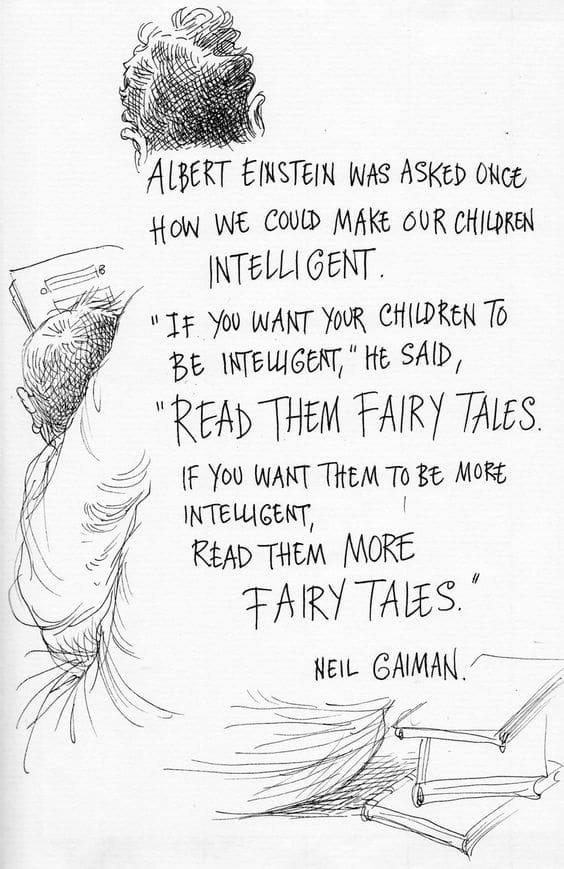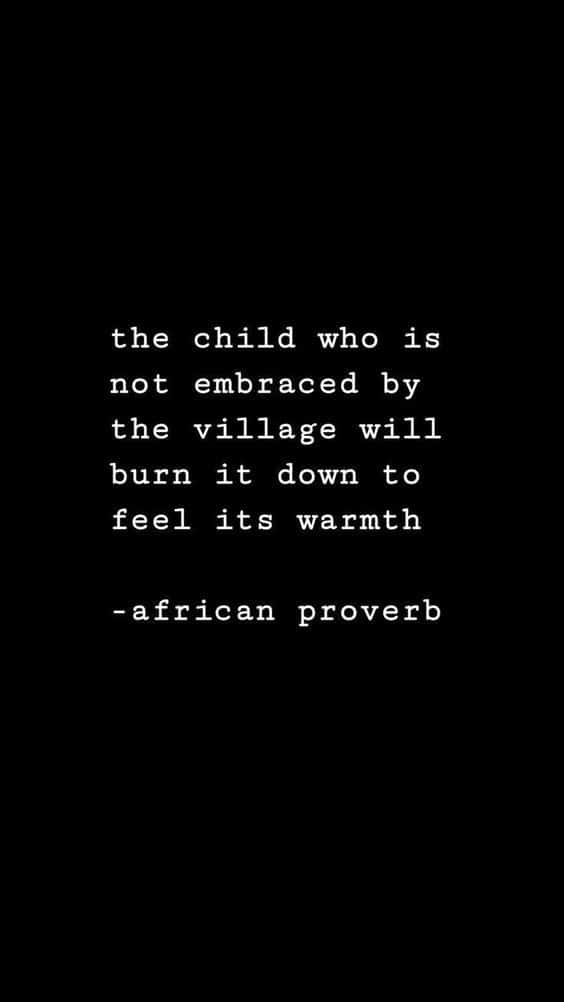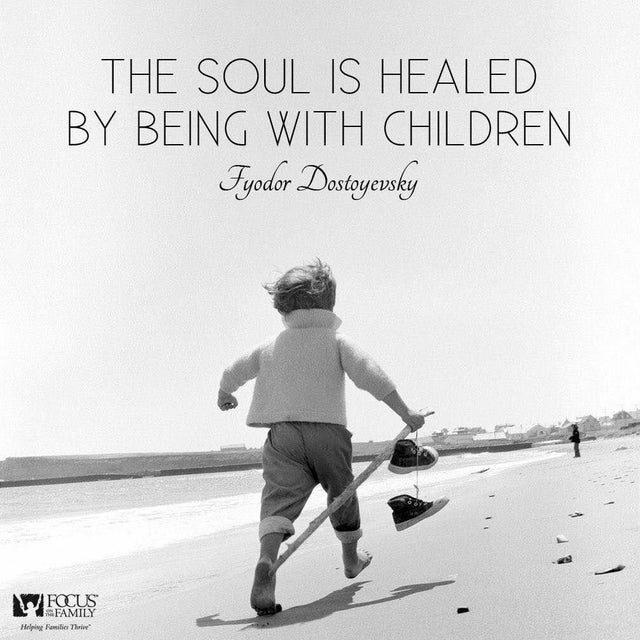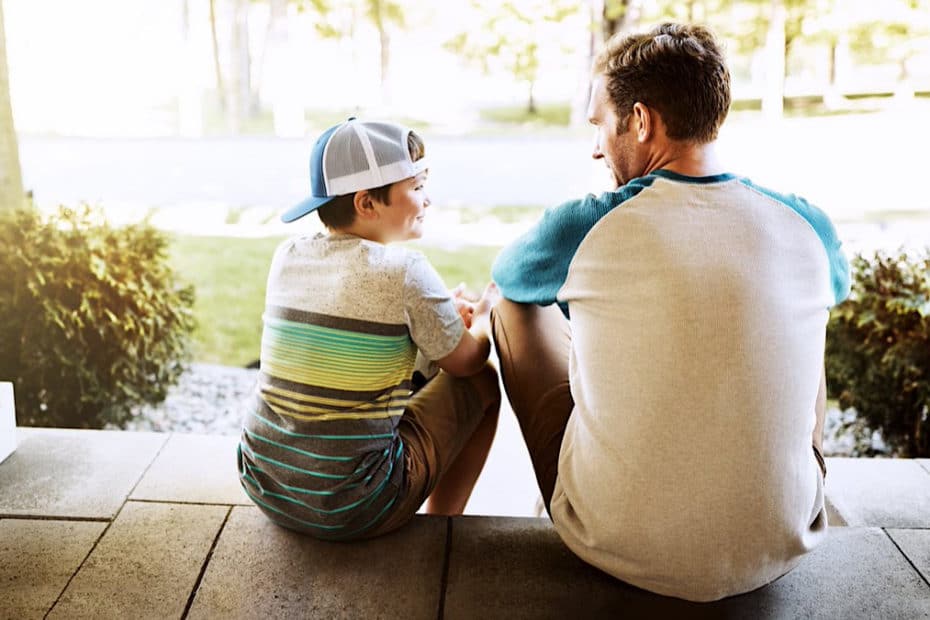“It is a good thing, it is even salutary, for a child to have periods of boredom, for him to learn to know the dialectics of exaggerated play and causeless, pure boredom.”
Gaston Bachelard, via Sunbeams (Page 117)
“There’s a reason why, when my son who’s six is crying, he needs a hug. It’s not just that he needs my love. He needs a boundary around his experience. He needs to know that the pain is contained and can be housed and it won’t be limiting his whole being. He gets a hug and he drops into his body.”
Matthew Stanford, via Becoming Wise (Page 68)
“In the service of God, you can learn three things from a child, and seen from a thief. From a child you can learn: (1) always to be happy; (2) never to sit idle; and (3) to cry for everything one wants. From a thief you should learn: (1) to work at night; (2) if one cannot gain what one wants in one night to try again the next night; (3) to love one’s co-workers just as thieves love each other; (4) to be willing to risk one’s life even for a little thing; (5) not to attach too much value to things even though one has risked one’s life for them—just as a thief will resell as stolen article for a fraction of its real value; (6) to withstand all kinds of beatings and tortures but to remain what you are; and (7) to believe that your work is worthwhile and not be willing to change it.”
Dov Baer, the Mazid of Mezeritch, via Sunbeams (Page 101)
“Do not confine your children to your own learning, for they were born in another time.”
Hebrew proverb, via Sunbeams (Page 54)
“There’s a time in every kid’s life when they’re still drawing every day and playing basketball every day. Then there’s a day when they stop drawing and keep playing basketball. They keep playing basketball because their parents do, and their parents don’t draw. At some point they’re like, ‘That can’t be cool because my parents don’t do it.’ You don’t think you’re cool, but if your kid says, ‘Dad, will you play with me?’ and you say, ‘Not now, I’m drawing,’ that kid is going to start drawing because that’s cool to them.”
Mo Willems
“I don’t praise a small child for doing what they ought to be able to do. I praise them when they do something really difficult—like sharing a toy or showing patience. I also think it is important to say ‘thank you.’ When I’m slow in getting a snack for a child, or slow to help them and they have been patient, I thank them. But I wouldn’t praise a child who is playing or reading.”
Charlotte Stiglitz, via The Examined Life (Page 21)
“A low self-love in the parent desires that his child should repeat his character and fortune. I suffer whenever I see that common sight of a parent or senior imposing his opinion and way of thinking and being on a young soul to which he is totally unfit. Cannot we let people be themselves, and enjoy life in their own way? You are trying to make another you. One’s enough.”
Ralph Waldo Emerson, Sunbeams (Page 21)
“When the child is ill, take care of his body but don’t pay too much attention. It is dangerous, because if illness and your attention become associated… which is bound to happen if it is repeated again and again. Whenever the child is ill he becomes the center of the whole family: daddy comes and sits by his side and inquires about his health, and the doctor comes, and the neighbors start coming, and friends inquire, and people bring presents for him… Now he can become too much attached to all this; it can be so nourishing to his ego that he may not like to be well again. And if this happens, then it is impossible to be healthy. No medicine can help now. The person has become decisively committed to illness. And that’s what has happened to many people, the majority.”
Osho, Courage (Page 96)
“The young child is free of fear; children are born without any fear. If the society can help and support them to remain without fear, can help them to climb the trees and the mountains and swim the oceans and the rivers—if the society can help them in every possible way to become adventurers, adventurers of the unknown, and if the society can create a great inquiry instead of giving them dead beliefs—then the children will turn into great lovers, lovers of life. And that is true religion. There is no higher religion than love.”
Osho, Courage (Page 77)
“Each second we live in a new and unique moment of the universe, a moment that never was before and will never be again. And what do we teach our children in school? We teach them that two and two make four, and that Paris is the capital of France. When will we also teach them what they are? We should say to each of them: Do you know what you are? You are a marvel. You are unique. In all of the world there is no other child exactly like you. In the millions of years that have passed there has never been another child like you… You may become a Shakespeare, a Michelangelo, a Beethoven. You have the capacity for anything. Yes, you are a marvel. And when you grow up, can you then harm another who is like you, a marvel? You must cherish one another. You must work—we must all work—to make this world worthy of its children.”
Pablo Casals, Joys and Sorrows
Diane Dreher Quote on Micromanaging and How It May Cause More Harm Than Good
“Micromanaging erodes people’s confidence, making them overly dependent on their leaders. Well-meaning leaders inadvertently sabotage their teams by rushing to the rescue and offering too much help. A leader needs to balance assistance with wu wei, backing off long enough to let people learn from their mistakes and develop competence.”
Diane Dreher
Beyond the Quote (194/365)
In the earliest stages of a child’s development it is the responsibility of the parents to provide the most ideal nurturing environments and circumstances. Children are, essentially, completely dependent on what their parents provide. As they grow, however, so too does their ability to accept responsibility and manage their own surroundings—starting on a micro level and growing in size proportionally as they mature.
Read More »Diane Dreher Quote on Micromanaging and How It May Cause More Harm Than GoodJ. Cole Quote from Snow On Tha Bluff and How It’s More Effective To Treat People Like Children
“I would say it’s more effective to treat people like children
Understandin’ the time and love and patience that’s needed to grow
This change is inevitable but ain’t none of us seen this before
Therefore we just gotta learn everything as we go”
J. Cole, Snow On Tha Bluff
Beyond the Quote (186/365)
There’s no disrespect in treating people “like children” in this way. It’s actually a brilliant way to look at uniquely challenging situations. For, what’s the difference between adults and children anyway? Development and experience? Adults are obviously developmentally more mature physically, mentally, and emotionally. And beyond that, the only other real difference is experience. Adults have undergone more experiences in their lives which have had more direct effects on how they think, feel, and act. And the reason most adults make better decisions is because their “better” judgement comes from their “bad” judgement remembered. Most children are still in the “bad” judgement phase.
Read More »J. Cole Quote from Snow On Tha Bluff and How It’s More Effective To Treat People Like ChildrenIain Thomas Quote On Giving People A Chance and How Everyone Is Someone
“Joan of Arc came back as a little girl in Japan, and her father told her to stop listening to her imaginary friends. Elvis was born again in a small village in Sudan, he died hungry, age 9, never knowing what a guitar was. Michelangelo was drafted into the military at age 18 in Korea, he painted his face black with shoe polish and learned to kill. Jackson Pollock got told to stop making a mess, somewhere in Russia. Hemingway, to this day, writes DVD instruction manuals somewhere in China. He’s an old man on a factory line. You wouldn’t recognize him. Gandhi was born to a wealthy stockbroker in New York. He never forgave the world after his father threw himself from his office window, on the 21st floor. And everyone, somewhere, is someone, if we only give them a chance.“
Iain Thomas, I Wrote This For You
Beyond the Quote (176/365)
What do you see when you look into the eyes of another human being? Do you see a person for what they appear to be? Do you see them for who they were? Do you see them for who they could be? It depends on the person, I suppose. When I look into the eyes of another human being, I try to see someone who, when given a chance, can become somebody. Somebody who has limitless potential inside that is only but waiting to be molded and realized. Somebody who is capable of great things. Somebody who can make a real difference in their world. I see this in almost everyone. But, not everybody sees it in themselves or others.
Read More »Iain Thomas Quote On Giving People A Chance and How Everyone Is SomeoneHow to Deal with Challenging Students – Proactively and In 3 Steps
Excerpt: Dealing with challenging students can be, well, challenging. Read our 3 steps and learn how to deal with challenging students – proactively.
Read More »How to Deal with Challenging Students – Proactively and In 3 Steps
Jordan Peterson Quote on Disciplining Children
“It is an act of responsibility to discipline a child. It is not anger at misbehavior. It is not revenge for a misdeed. It is instead a careful combination of mercy and long-term judgment. Proper discipline requires effort—indeed, is virtually synonymous with effort. It is difficult to pay careful attention to children. It is difficult to figure out what is wrong and what is right and why. It is difficult to formulate just and compassionate strategies of discipline, and to negotiate their application with others deeply involved in a child’s care. Because of this combination of responsibility and difficulty, any suggestion that all constraints placed on children are damaging can be perversely welcome. Such a notion, once accepted, allows adults who should know better to abandon their duty to serve as agents of enculturation and pretend that doing so is good for children. It’s a deep and pernicious act of self-deception. It’s lazy, cruel and inexcusable.”
Jordan Peterson, via 12 Rules for Life(Page 124)
Beyond the Quote (51/365)
Once we agree that the proper disciplining of children is necessary, the question that quickly follows is, how do we discipline properly? What strategies and tactics should we use to ensure that our children will abide by and will continue to abide by the rules we have decided upon? One idea that you might explore is a martial arts concept that is practiced in self-defense situations that suggests we use the minimum force necessary. If we have to defend ourselves, we only use the minimum amount of force that would stun or neutralize the opponent so that we can safely escape. For kids, the idea would be to use the minimum strategy or tactic necessary to get them back into accordance with the rule set.
Read More »Jordan Peterson Quote on Disciplining Children9 Rules for Children from 12 Rules For Life by Jordan Peterson
Excerpt: 9 Rules for Children from Jordan Peterson that can offer you a solid framework to build off of when structuring home life for your kids.
Read More »9 Rules for Children from 12 Rules For Life by Jordan Peterson





